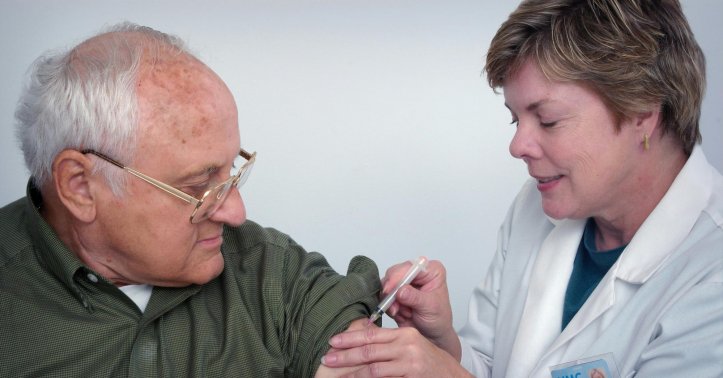
Tips for Taking a Less Invasive Approach to Health and Wellness for Seniors
As the global population ages, the welfare of seniors remains a paramount concern. Adopting a less invasive approach towards their health and wellness can lead to better outcomes and quality of life. Emphasizing non-intrusive methods can help the elderly maintain independence and remain engaged with life's pleasures while reducing discomfort from more aggressive treatments. Below, we delve into practical steps and strategies to adopt a gentler, yet effective, health regime for seniors.
Understanding the Importance of a Less Invasive Health Approach for Seniors
For older adults, opting for less invasive healthcare options can foster a greater sense of independence and control. Non-invasive treatments mitigate the stress and risks associated with traditional medical procedures, which is particularly beneficial for seniors dealing with multiple health concerns that complicate recovery from invasive treatments. Take knee arthritis treatment without surgery, for instance; it offers relief while sidestepping potential surgical complications and lengthy rehabilitation periods, enhancing both physical comfort and emotional well-being.
Elderly patients often seek holistic healthcare approaches that encompass various therapies like acupuncture and therapeutic massage, complementing conventional Western medicine. Recognizing the interconnectedness of body and mind in senior care is vital, focusing on holistic well-being rather than just symptom management. Non-invasive treatments are not only effective but can sometimes yield superior results for conditions prevalent among older adults. Customized care plans tailored to individual needs and preferences are pivotal, fostering better patient outcomes and higher satisfaction levels.
Incorporating Gentle Exercise into Daily Routines for Improved Mobility
Regular exercise significantly improves senior health by enhancing flexibility, reducing pain, and alleviating stiffness. Activities like walking, swimming, or tai chi boost cardiovascular fitness, strengthen muscles, and improve balance, crucial for preventing falls. These exercises are accessible and can easily fit into daily routines without requiring a gym or expensive equipment. Consistency is essential for maximizing health benefits over time, whether through home stretching or practicing chair yoga.
Group exercise classes not only enhance physical fitness but also promote social interaction, combating loneliness and fostering a positive mental outlook. Engaging in fitness activities with peers encourages a more active lifestyle and contributes to overall well-being. It's important to tailor exercise programs to individual capabilities and health conditions. Consulting healthcare professionals, such as those at https://www.nad.com, ensures seniors embark on safe and effective fitness plans, minimizing injury risks and maximizing health benefits.
The Role of Nutrition in Non-Invasive Senior Wellness Strategies
Nutrition plays a critical role in older adults' health due to slowed metabolism and changes in nutrient absorption. A diet rich in fruits, vegetables, whole grains, lean proteins, and healthy fats supports overall vitality and helps manage chronic conditions effectively. Adequate hydration is also crucial for seniors to support bodily functions and reduce risks like urinary tract infections.
Adjusting diets can be as impactful as medical treatments; for example, increasing omega-3 fatty acids from fish or flaxseeds benefits cognitive function and heart health, potentially reducing medication needs. Working with healthcare providers or dietitians is essential to tailor meal plans that meet individual health needs, considering changing nutrient absorption and medication interactions.
Integrating Mindfulness and Relaxation Techniques for Holistic Elderly Care
Senior citizens face significant life changes and health issues, where mental well-being is just as critical as physical health. Practices like meditation and deep-breathing exercises are effective in reducing stress and boosting emotional health. These techniques foster a calm mind and help alleviate symptoms of anxiety and depression.
Simple relaxation methods, such as progressive muscle relaxation and visualization exercises, offer practical benefits like reducing tension and improving sleep quality for seniors. Integrating mindfulness into daily routines also supports cognitive function, keeping the mind sharp through activities like problem-solving and memory games, which can prevent cognitive decline. Community-based programs, including group discussions and educational workshops, are invaluable for seniors, offering emotional support, skill-building opportunities, and a sense of community that enhances overall well-being.
Navigating Technology for Health Monitoring Without Intrusiveness
Technological advancements have greatly enhanced how seniors monitor their health. Wearable devices like fitness trackers now track physical activity, sleep patterns, and heart rate, providing seniors and their healthcare providers with crucial health data. This allows seniors to be proactive about their health without intrusion.
Telemedicine has also revolutionized senior care by enabling remote consultations with medical professionals. This eliminates the need for travel, which is particularly beneficial for seniors with limited mobility or those living in remote areas. It ensures timely access to medical advice and enhances convenience for older adults seeking healthcare support. User-friendly designs tailored to seniors' needs encourage regular use of these technologies, supported by community initiatives that provide education and guidance on adopting new health technologies effectively.
Altogether, to enhance senior health and wellness, a holistic approach includes physical fitness, nutrition, mental well-being, and gentle technology. Customizing these methods ensures seniors maintain independence and dignity, leading to a better quality of life. This integrated care approach aims to support aging individuals effectively and comfortably, promoting their overall well-being without undue stress.








